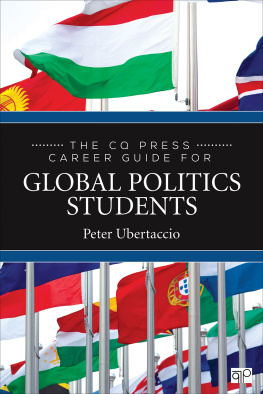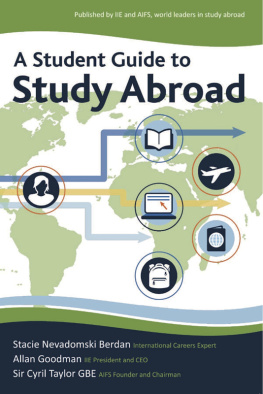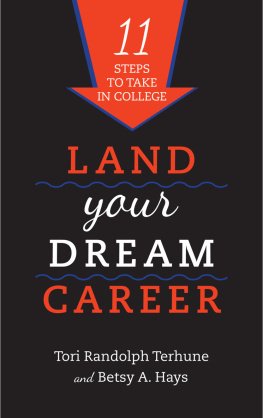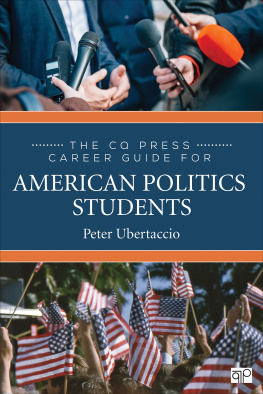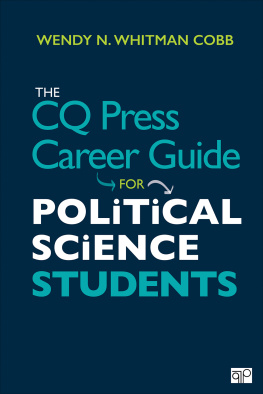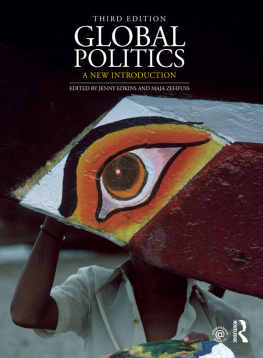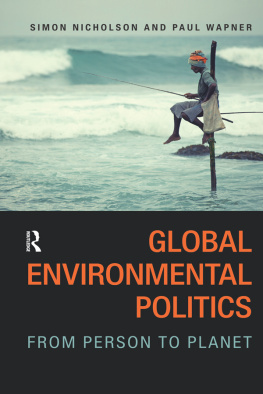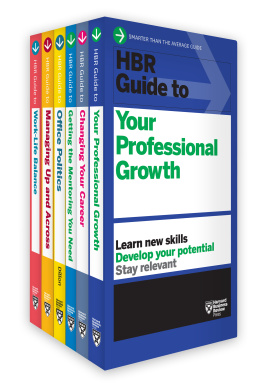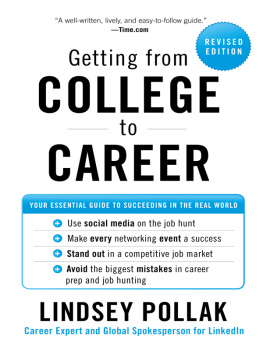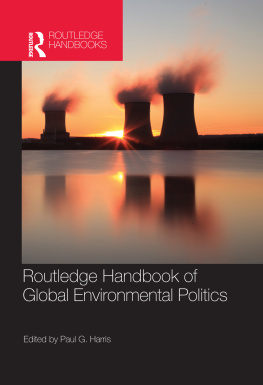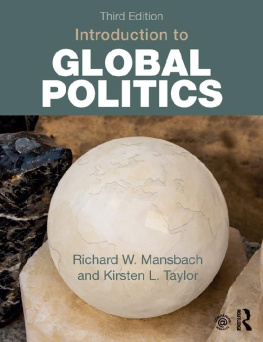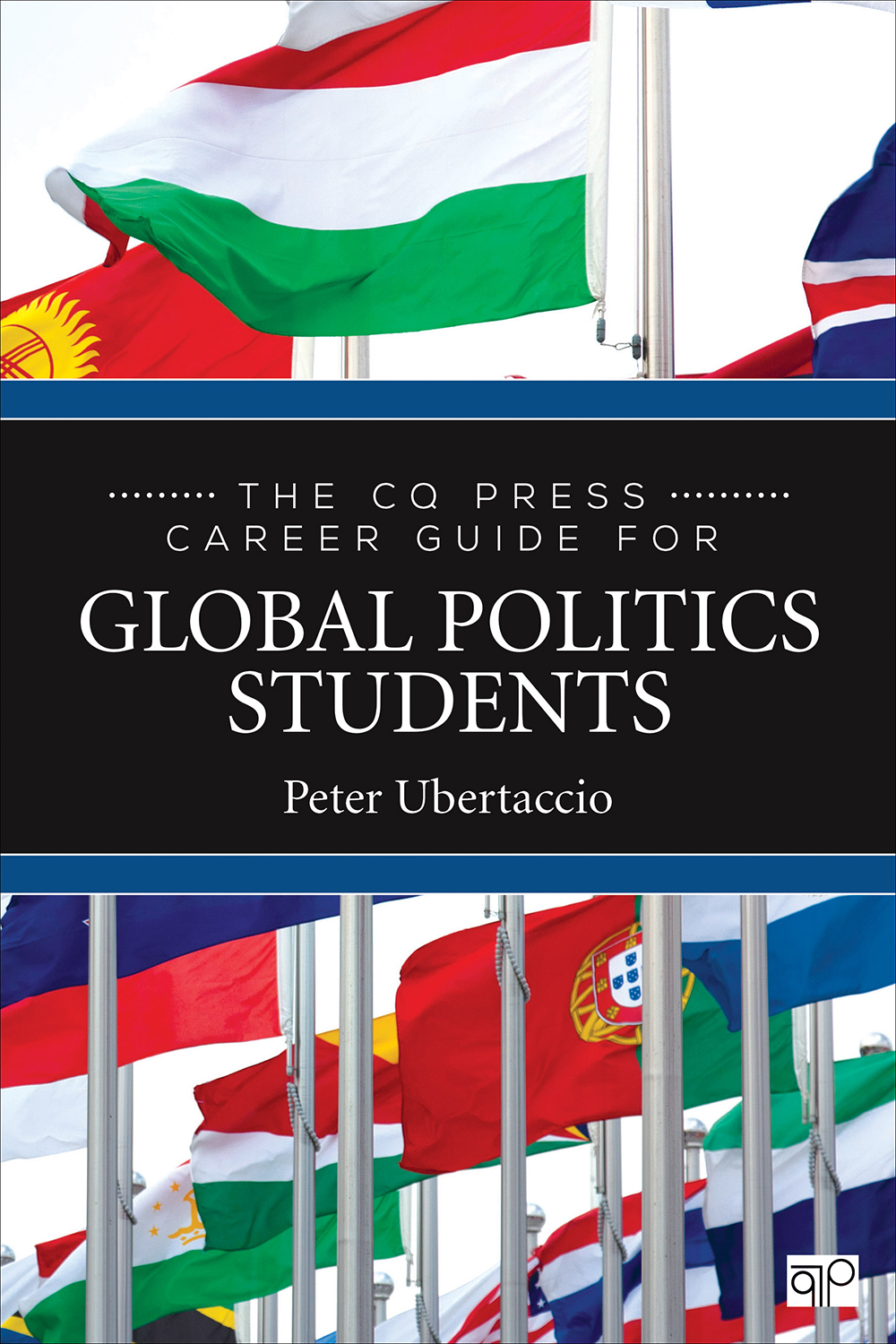Introduction
The best part of being a professor at a college dedicated to a core liberal arts curriculum is the opportunity it affords to teach and learn both in and out of the classroom. What I have noticed over the years, however, is a growing disconnect between the activities in my classroom and the kinds of questions and concerns students have about the job market or other next steps they might take upon graduation. It was as if the study of politics was somehow unrelated to the demands of an ever-changing job market.
The response to this trend is this guidebook. The data from employers and their own observations of the job market make it clear they want students who have strong analytical and critical thinking skills, public speaking and writing skills, and the ability to process complex issues and data points. They want creative thinkers who can work in teams, are capable of research, and understand the world in which we live. These are the skills one develops by a rigorous study of politics.
I imagine this guide as a companion piece along with an introductory or upper-level textbook in courses in international relations, comparative politics, and international studies. It aims to be a powerful introduction to the job market in the field and to the variety of options that exist for the student of global politics. Many students, those who major in political science or international studies and those who simply have a passing interest in the subject, wish to learn more about career paths in the field. It is particularly difficult for them to navigate job opportunities in the field because the market is diffuse and open to so many pathways.
Making that first step is difficult. Indeed, launching a career in the wide space of international politics can be frustrating because of the peculiarities of this particular job market. Theres not going to be a table at a job fair that reads, International Politics.
This book is designed to help alleviate some of the frustrations undergraduate students encounter by encouraging them to take the important first few steps into this world with a full understanding of how to develop a trajectory in international politics and government that can yield important results later in their careers.
Plan of the Book
My hope is that this guide will appeal to any student with an interest in the subject. Students find themselves in courses in this field because of their interest in international service, globalism, foreign policy, or prospective future travel. Very few choose to go directly into a PhD program. Indeed, taking interim steps between undergraduate work and graduate school is often a requirement for some of the best PhD programs in the field.
The book begins by encouraging students to think about their own stories and the problems in this world they hope to solve. It encourages them to think about this before worrying about an older question, What do you want to be? Students redirected away from this narrow question are much better prepared for many other questions this book will help them consider.
- What can you do with your interest?
- How can you leverage your interests and academic work for employment after college? What steps should you be taking now to ensure your professional readiness after graduation?
begins the process of examining each of these questions, designed to help students who are interested in international issues align their academic and co-curricular pursuits to skills and career readiness competencies that are in demand by employers in the field. It lays out an important checklist that students can use to begin this process, including rsum review, a social media strategy, and what networking really means.
offers some concluding thoughts on the study of global politics and what the future might hold for those pursuing a degree in this field.
Acknowledgments
Ive had the pleasure of teaching hundreds of students at Stonehill College. As they move on to a variety of career and service opportunities, graduate and professional schools, they continue to reinforce my belief that a good, rigorous education in politics complements the demands of the 21st-century job market. Two in particular, Kristen Fontaine and Jenna Christiansen, helped me with some of the background research for this book.
I am particularly grateful to my reviewers for their helpful comments when this guide was in proposal form and for the great team at SAGE/CQ PressMonica Eckman, Scott Greenan, and Sarah Christensenfor the opportunity to put this together and for their sharp eyes and gentle nudges.
Reviewers:
- Gilbert Gagn, Bishops University
- Robert P. Hager, Los Angeles Mission College
- Laurie A. Sprankle, Community College of Allegheny County
About the Author
Peter Ubertaccio is the dean of the School of Arts and Sciences at Stonehill College in Easton, Massachusetts, an associate professor of political science, former chair of the Department of Political Science and International Studies, and former director of the Joseph Martin Institute for Law & Society. For more than 10 years he taught a travel coursePower, Politics, and Policymakingin Washington, D.C., where students attended 2 weeks of academic seminars with leaders in government, political parties, think tanks, and journalism. He created Stonehills Hill to Hill networking program, which brings fourth-year students to Washington, D.C., for week-long networking opportunities and works with students to land their first job on Capitol Hill or Beacon Hill. He also oversaw the Stonehill in Washington, D.C., program for students wishing to intern in Washington for a semester. In addition, he has taken groups of students to New York City, Guatemala, Mexico City, Nigeria, and the United Kingdom. He helped establish Stonehills Model UN program and supervised dozens of international internships while on the faculty.

